With all the news reaching us about labor shortages, interest in horticultural robots has been bigger than ever. Harvest robots, spray robots, cleaning robots: in 2022, Hortidaily published a lot on this topic. Let's have a look at 10 robot articles from 2022.
"New robot to lower a plant every 10 to 20 seconds"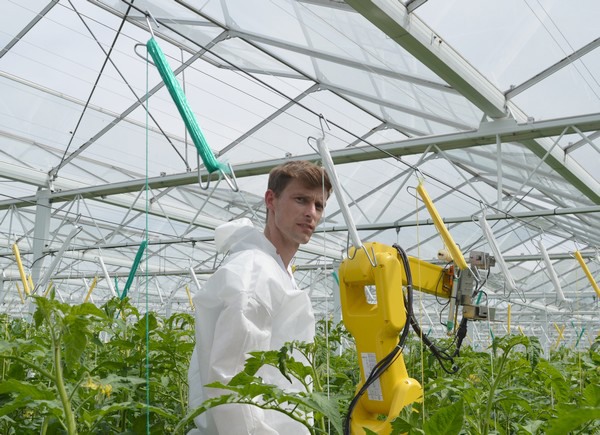 It is hot in the greenhouse at tomato grower Vermarke in Sint-Katelijne-Waver in early June. But one 'special employee' is not troubled by this. They are a robot that lowers the tomato plants. To do so, the robot turns the hooks around. "What is special is that the robot does this without being attached to the wire," Dimitri Verbruggen demonstrates. He is a manager at robot developer Veditec and points at what to the layman is 'a simple piece of metal'. "We have applied for a patent for this special gripper."
It is hot in the greenhouse at tomato grower Vermarke in Sint-Katelijne-Waver in early June. But one 'special employee' is not troubled by this. They are a robot that lowers the tomato plants. To do so, the robot turns the hooks around. "What is special is that the robot does this without being attached to the wire," Dimitri Verbruggen demonstrates. He is a manager at robot developer Veditec and points at what to the layman is 'a simple piece of metal'. "We have applied for a patent for this special gripper."
"Polly, the AI robot pollinator that aims to replace bumble bees"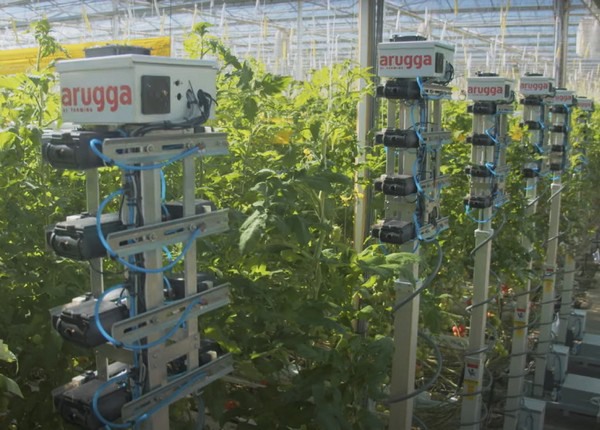
Israel develops a commercial alternative to bee pollination. Robots are replacing bumblebees as a more efficient and reliable way of pollinating crops.
"Yield prediction in vine tomatoes: towards one robot for all tomato varieties"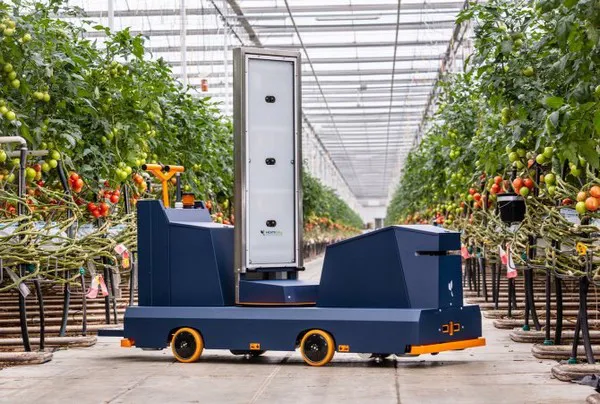
Growers want to be able to estimate how many tomatoes can be harvested in the coming period as accurately as possible to optimally meet market demand. By controlling temperature, water and light, growers can influence the ripening of the tomatoes. This requires a lot of experience, and in these times of labor scarcity in horticulture, the sector could use an efficiency boost. Harvest forecasting with an autonomous robot such as that of project partner Berg Hortimotive – Hortikey could offer a solution in the near future.
"Cucumber grower let robot do most of the leaf picking"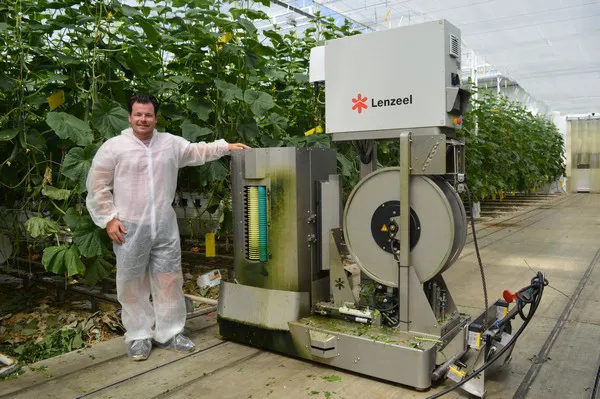 When he steps into the greenhouse of cucumber grower Multigrow Grashoek, Stijn Linders of Lenzeel immediately makes a short sprint. The reason? The Diplo leaf-picking robot is already on its way to a new row of cucumber plants, where the robot will pick leaves from the bottom of the crop. Once in the row, the robot is busy for a while, so Stijn lets it stop to take a closer look.
When he steps into the greenhouse of cucumber grower Multigrow Grashoek, Stijn Linders of Lenzeel immediately makes a short sprint. The reason? The Diplo leaf-picking robot is already on its way to a new row of cucumber plants, where the robot will pick leaves from the bottom of the crop. Once in the row, the robot is busy for a while, so Stijn lets it stop to take a closer look.
"Agriculture and horticulture unjustly underexposed in robot report" 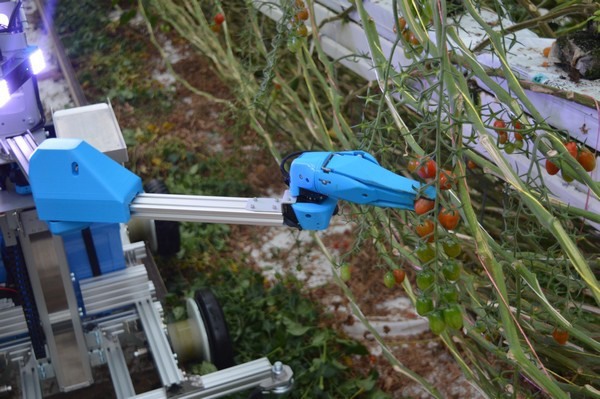
A recently published report on the Dutch robot market is missing the current steps and developments in the field of robotization in the agricultural sector. That is the opinion of manager Thijs Dorssers of sector association Holland Robotics.
"Robot bee project awarded £640,000 grant" 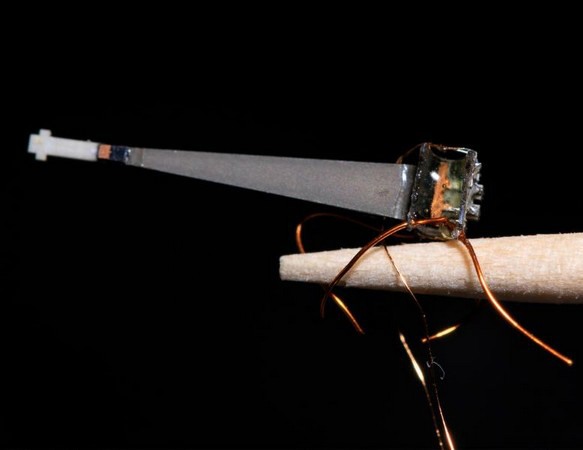
A scientist from the University of Stirling and his US collaborator have been jointly awarded a £640,000 grant to create “robot bees”. In a project which aims to improve agriculture as well as help advance understanding of the evolution of species of bees and flowers, these microrobots are to be built to simulate the buzzing of bees.
"Meet Berry, the award-winning picking robot"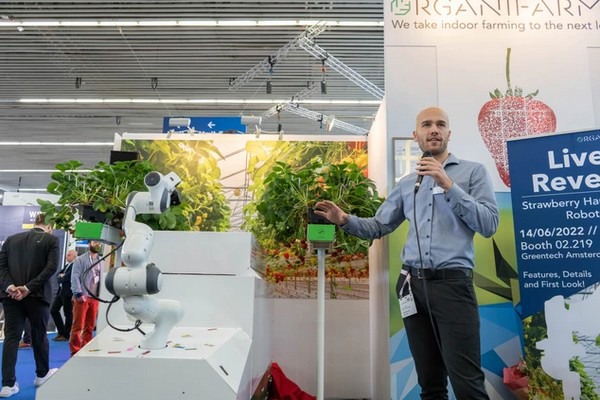
For the first time, Berry, Organifarm's harvesting robot for strawberries, was revealed to the public. After two years of development, the product was now market-ready. During the GreenTech fair in Amsterdam, visitors got a first glance at what Berry has to offer.
"SWEEPER, the sweet pepper harvesting robot"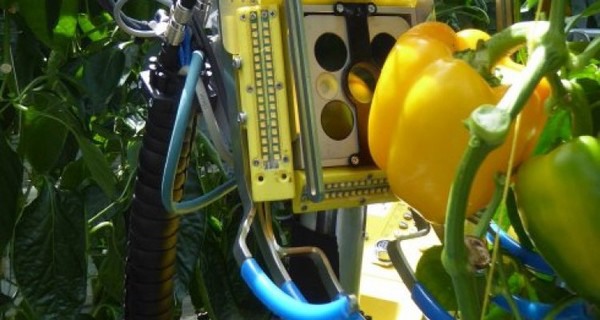
In the world of greenhouse horticulture, there is a great need to automate labor. The availability of employees who want to perform repetitive tasks under challenging climatic conditions is rapidly decreasing. At the same time, the robotization of this work offers a wealth of advanced technological possibilities.
"China's first artificial intelligence 5G agricultural robot comes out"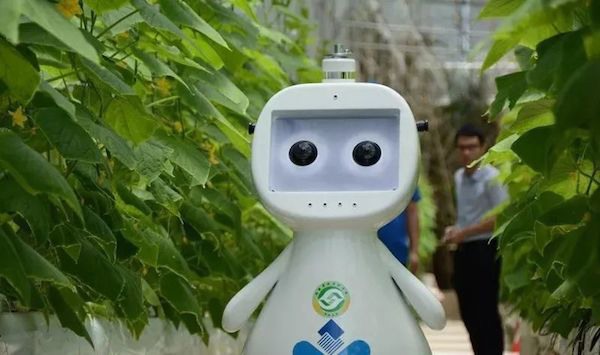
China's first artificial intelligence agricultural robot has officially started round-the-clock inspections in the smart vegetable and fruit greenhouse of the China-Israel Demonstration Farm in the Haixia Modern Agriculture Demonstration Park of the Fujian Academy of Agricultural Sciences.
"Strawberry grow bags are a ‘robot testing bed’ at Lincoln University"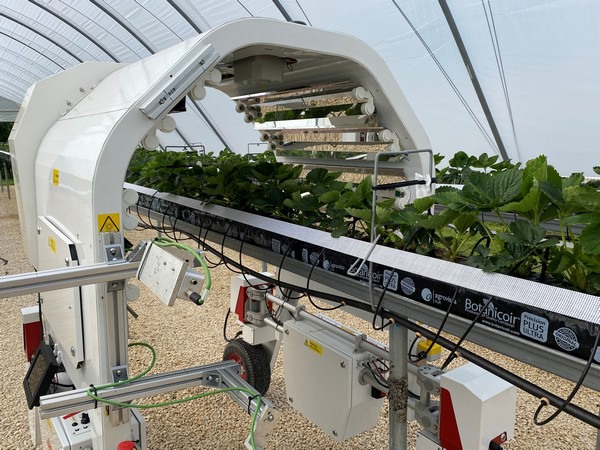
The University of Lincoln’s 200-hectare Riseholme Campus is using AI and robotics to find solutions to key issues in farming and food production.
“We try to make our strawberry research farm as commercially representative as possible. We grow on a tabletop system under plastic, and the whole site is controlled via a PIP irrigation system. Crucial to this style of growing is the use of high-quality coir grow bags,” explains Jonathan Trotter, research project coordinator at the University of Lincoln.
